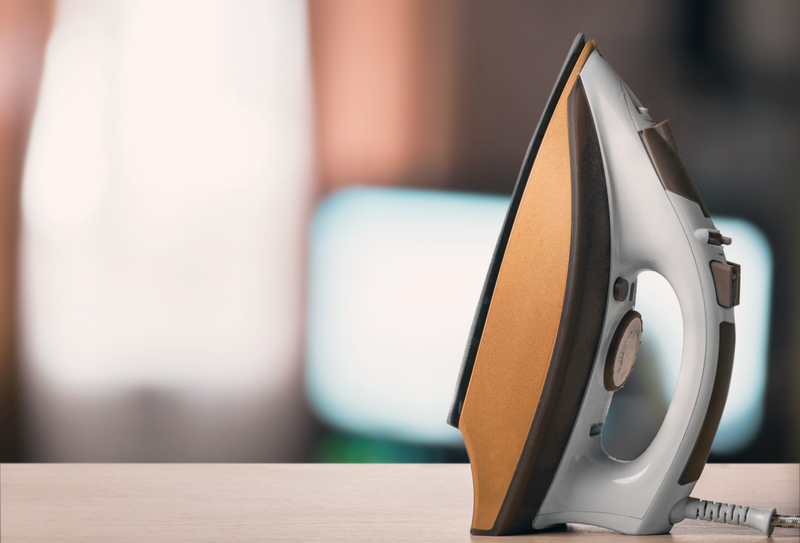Easy Feng Shui for Home Bliss
Posted on 11/09/2025
Introduction to Feng Shui
Feng Shui, the ancient Chinese art of placement and energy flow, has been practiced for thousands of years to harmonize individuals with their environment. This philosophy centers around the belief that the arrangement and orientation of objects within a space can significantly impact the energy, or "Chi", flow. When applied to your home, Feng Shui can create a balanced and harmonious space, fostering feelings of calm, well-being, and success. Here's a comprehensive guide to achieving home bliss with easy Feng Shui principles.

Declutter Your Space
One of the fundamental steps in creating a Feng Shui-friendly home is to declutter. Clutter disrupts the flow of energy and can lead to feelings of stress and anxiety. Start by organizing your belongings and removing anything that no longer serves a functional or emotional purpose. This not only creates physical space but also mental clarity.
Embrace Natural Light and Air
Natural light and fresh air are vital components of good Feng Shui. Open your windows regularly to allow fresh air to circulate and maximize natural light by using sheer curtains or strategically placing mirrors to reflect light into darker areas. Healthy plants can also enhance air quality and introduce a sense of nature and vitality to your home.
Optimal Furniture Placement
Furniture placement plays a crucial role in Feng Shui. Arrange your furniture in a way that promotes open pathways and good energy flow. Avoid placing furniture directly in line with doors, as this can block Chi. Instead, opt for arrangements that create a welcoming and tranquil atmosphere. For example, position your bed so that you can see the door but are not directly in line with it, promoting a sense of security.
Incorporate the Five Elements
Feng Shui revolves around the balance of five elements: Wood, Fire, Earth, Metal, and Water. Each element represents different energies and can be incorporated through various materials, shapes, and colors in your home decor:
- **Wood:** Promotes growth, vitality, and flexibility. Introduce wooden furniture or green plants.
- **Fire:** Represents passion, transformation, and energy. Use candles, red colors, or triangular shapes.
- **Earth:** Symbolizes stability and nourishment. Incorporate earthy tones, ceramics, and square shapes.
- **Metal:** Enhances clarity and precision. Include metallic finishes, white or grey colors, and round shapes.
- **Water:** Reflects calmness and abundance. Add water features, mirrors, or blue and black hues.
Personalized Feng Shui Tips
- **Front Door:** The front door is the main entry point for energy. Ensure it is clean, well-lit, and free of obstacles to welcome positive Chi.
- **Bedroom:** For restful sleep, keep electronics to a minimum and choose soothing colors. Use a solid headboard and balanced nightstands on either side of the bed.
- **Kitchen:** The kitchen represents nourishment and should be kept clean and organized. Use bright lighting and ensure the stove is in a commanding position.
- **Living Room:** This space should encourage social interaction and relaxation. Arrange seating in a circular pattern to foster communication and use warm colors to create an inviting atmosphere.

Pros and Cons of Feng Shui
**Pros:**
- **Enhanced Environment:** Feng Shui can create a more harmonious and balanced living environment.
- **Mental Clarity:** Decluttering and organized spaces can lead to improved mental clarity and reduced stress.
- **Well-being:** Promotes a sense of well-being and positivity within the home.
- **Cultural Appreciation:** Enhances cultural understanding and appreciation of ancient philosophies.
**Cons:**
- **Time-Consuming:** Initial setup and reorganization can be time-consuming.
- **Cost:** Implementing certain Feng Shui elements, like new furniture or decor, can be expensive.
- **Subjectivity:** The effectiveness of Feng Shui can be subjective and vary from person to person.
Takeaways and Conclusion
Feng Shui offers a holistic approach to creating a peaceful and harmonious home. By focusing on decluttering, optimizing natural light and airflow, arranging furniture thoughtfully, and incorporating the five elements, you can significantly enhance your living environment.
- **Tips:**
- Regularly declutter and organize.
- Maximize natural light and air circulation.
- Use the five elements to balance energies.
- Pay attention to the arrangement of key areas like the front door, bedroom, and kitchen.
**Conclusion:**
Feng Shui is more than just an aesthetic approach; it's a way to enhance the flow of positive energy, promoting health, happiness, and prosperity. While it may require some effort and investment, the rewards of a balanced and harmonious home are well worth it. Embrace these easy Feng Shui principles and transform your space into a sanctuary of bliss.
Latest Posts
Tips for Safely Cleaning Car Leather Seats
Effective Carpet Stain Removal
Preserving the Elegance of Velvet Curtains Through Washing
A Comprehensive Guide to Ridding Your Toilet of Unsightly Limescale







